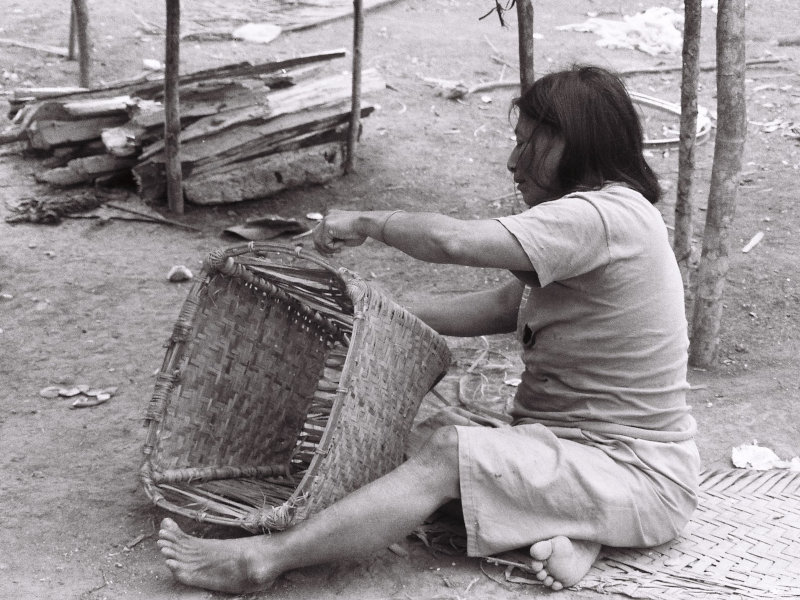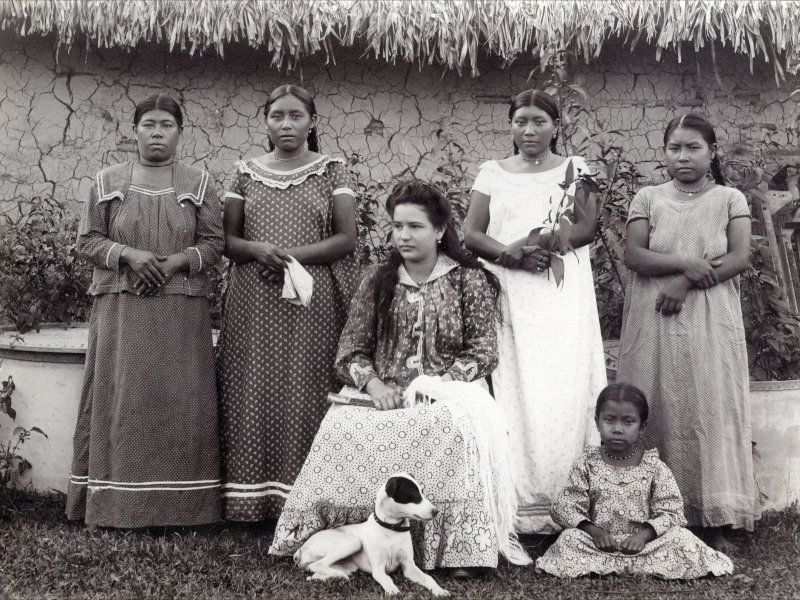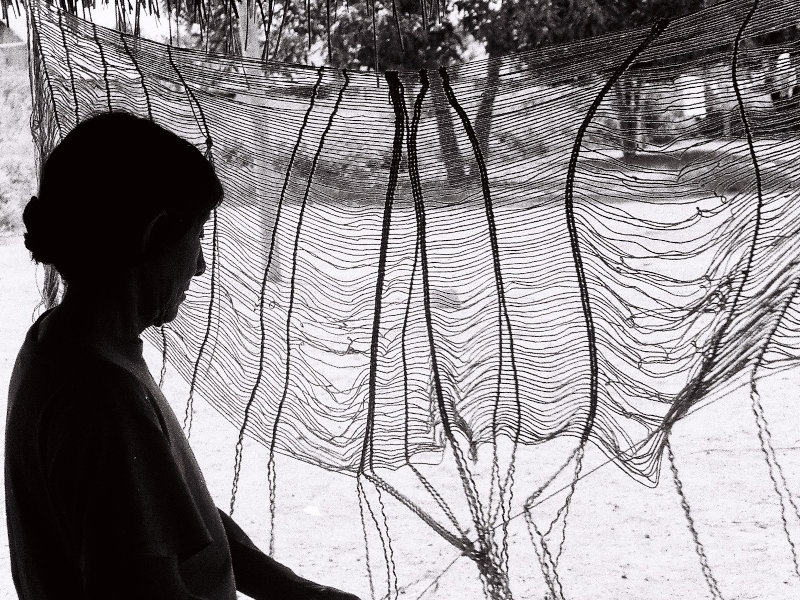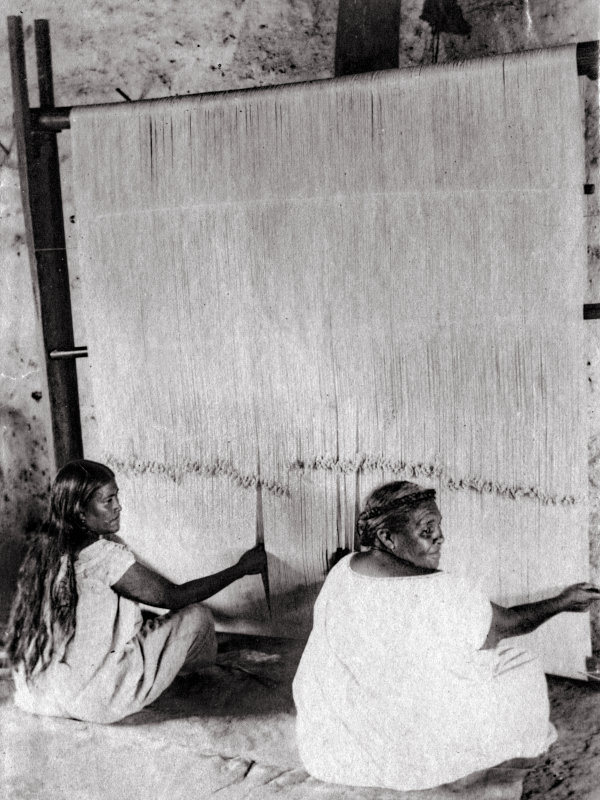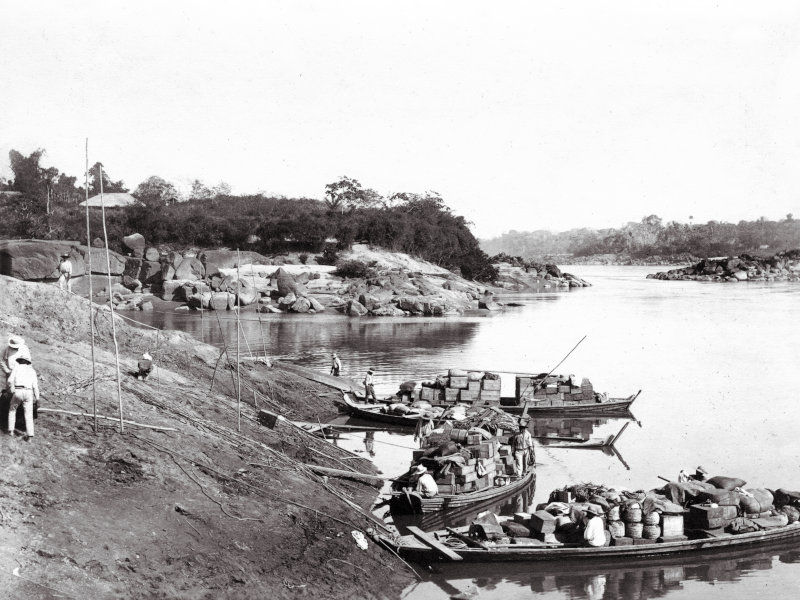Nameless-Stories
The Invisible Women: Nameless and Forgotten Stories of the Rubber Boom (Bolivian Amazonia, 19-20th centuries)
About
The Nameless-Stories research project aims to reconstruct and revalue female agency during the "Rubber Boom" in Bolivian Amazonia. The goal is to rescue the testimony of indigenous women neglected by the historical sources on the account of their ethnic condition, as well as the social agency of the Creole or European female laborers who were "silenced" by the sexist bias of regional historiography or rendered invisible as immigrant settlers.
Research
Nameless-Stories proposes an alternative reading of historical documents and memories of the rubber era that sheds light on the female protagonists of the Rubber Boom that not only played a decisive role in the industry but were rather heterogeneous and diverse. The overall objective is to rescue from oblivion the plural voices, experience, and perspectives of and about indigenous rubber women (siringueras, cooks, maids, seamstresses, washers, lovers, bush wives), but also the Creole or European women who arrived in the Amazon to work in the industry, or simply to join their parents or husbands in the great rubber adventure
The project will carry on a multidisciplinary approach that reconstructs the agency of women by repositioning them in a more visible place within the local archives and regional history.
This general goal leads to two objectives:
- The first objective is to create a participatory and open access web archive about the multiethnic female actors of the rubber boom, thus rendering the information accessible to the Bolivian public, and to those interested in the Amazonian history. The archive will mainly consist of historical archives, documentary sources and above all collections of ethnographic data, unpublished texts, and little-known pictures on Indigenous, Creole, and European women during the extractive period.
- The second objective is to develop a critical re-reading of the documentary, historical, journalistic and literary sources of the rubber period, in order to revalue the multiple ways of female participation in the extractive endeavor. The project aims to articulate this data with an updated ethnographic perspective that will reconstruct the oral memory and life-stories of European, Creole and Indigenous women involved with rubber through a continuum of direct or indirect relations that ranged from barter to wage labor, from marriage alliance to compadrazgo (fictive kinship), and from commerce to sexual violence, kidnapping and even enslavement.
Outputs
Nameless-Stories expected results are:
- An open-access web archive of visual, oral, and textual memories on the rubber boom with special emphasis on the various experiences of Indigenous, Creole, and European women.
- Two articles in high impact journals: one ethnographic/historical paper and one methodological paper about the methodological implications of the research.
- A written monograph on the matter, to be edited and published jointly by several scientific institutions in Italy and Bolivia.
Publications
- December 2025 - Lorena Córdoba, book chapter: “Viaggiare, nominara, ricordare: due sguardi sulle donne ai tempi del caucciù”
- October 2025 - Lorena Córdoba, book chapter: “La tragedia del Adolfito, o de cómo un naufragio cambió la historia amazónica”
- December 2024 - Lorena Córdoba and Anna Guiteras Mombiola, book chapter: Labor, Resistance, and Politics: Indigenous Agency in the Bolivian Rubber Boom
- May 2024 - Lorena Córdoba, book: “La reina del Orthon. Crónicas femeninas del auge gomero”, Edizioni Ca' Foscari
Review on “Journal de la Société des américanistes” [SPA]
News and events
Related links
- Interruptions - Accidents, malfunctions and downtime. Another view of extractive territories
- HITAL - Histoire transatlantique des Anthropologies d’Amérique Latine / International Research Network [FRA]
- MOTOBOOM - The Impact of the Current Dissemination of Motorcycles in Indigenous Lowland South America
- CIHA - Centro de Investigaciones Históricas y Antropológicas [SPA]
- PEAC - Programa de Estudios Antropológicos Comparativos [SPA]
Secondments
The Secondment at IHEAL-CREDA [FRA] will allow to acquire specific skills of digital conservation and management of indigenous memories and the modalities of virtual access to open-access archives, which is the axis of the current trajectory of the proposed supervisor at the proposed institution: Dr. Nicolas Richard [FRA]

